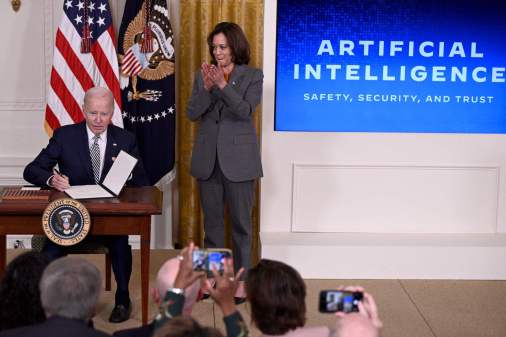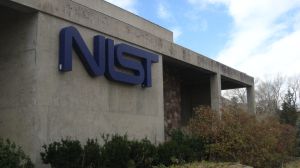NIST seeks evidence on economic impact of 8 emerging technologies

The National Institute of Standards and Technology wants input on the marketplaces, supply chain risks, and policy and investment needs of eight emerging technologies, according to a request for information issued Monday.
NIST plans to refine its approach to the current and future states of artificial intelligence (AI), the Internet of Things (IoT), IoT in manufacturing, quantum computing, blockchain, new and advanced materials, unmanned delivery services, and 3D printing based on responses.
The American Competitiveness of a More Productive Emerging Tech Economy (COMPETE) Act of 2020 called for NIST to complete a “Study to Advance a More Productive Tech Economy,” which the agency plans to deliver by the end of 2022 based on responses to the request for information (RFI).
“NIST invites stakeholders throughout the scientific research, standards, advocacy, industry, and non-scientific communities, including the general public, to provide input for creating a forward-thinking approach that supports emerging technology to foster economic growth and competitiveness across the nation in ways that benefit all Americans,” reads the RFI posted to the Federal Register. “NIST will develop the report in a manner consistent with its mission to promote U.S. innovation and industrial competitiveness.”
With the exception of unmanned delivery systems, the emerging technology areas are ones where NIST has played a role advancing measurement science, standards and the technologies themselves. NIST does have expertise in autonomous systems, which should translate when addressing autonomous delivery.
Regarding technology development, NIST seeks information on the federal agencies with jurisdiction over each area and the industries they work with, as well as how they can expand economic opportunities and adoption. NIST also wants to know of existing standards and legislation, how they help or harm technology maturation, what new standards and legislation are needed, and how public-private partnerships can help.
On the applications and utilization side, NIST asks how prevalent each technology is among industry, how to strengthen regional U.S. innovation centers, how marketplaces are changing, what the risks of each technology are especially in supply chains, how supply chain risks are assessed, and the extent of the capabilities of our foreign competitors.
The deadline for responding to the RFI is 5 p.m. EST on January 31, 2022.
Aside from the required report, NIST will use responses from the RFI to inform its research program and standards activities.
“NIST uses multiple inputs to inform our scientists and engineers about technological trends and investments being made by the private sector,” an agency spokesperson told FedScoop. “This information helps us to make decisions on where and how best to deploy our resources so that we deliver the most impact to the taxpayer.”




